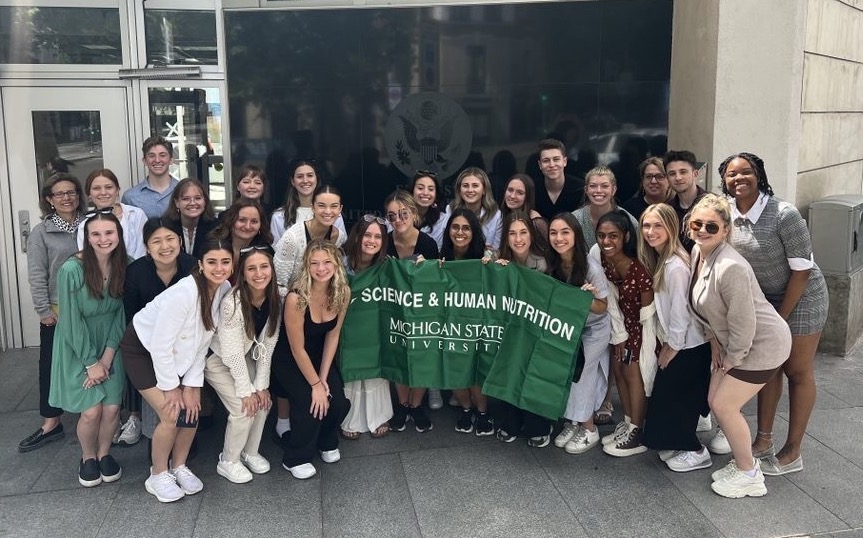Cultivating Knowledge: Examining Food Systems in Spain

Last May, students from Michigan State University arrived in Madrid to participate in the Global Food Systems & Health program. Under the direction of MSU faculty Jenifer Fenton and Zeynep Ustunol, students embarked on an experience beyond borders, exploring global agriculture in an international context.
As part of the program, the group visited the United States Department of Agriculture (USDA) at the U.S. Embassy in Madrid, which provided a window into the fascinating world of international trade. Students were led in the visit by Karisha Kuypers, the embassy’s agricultural attaché for Spain and Portugal. In a detailed presentation, Kuypers introduced the USDA’s vital role in global agriculture and discussed the intricacies of imports, exports, foreign policies, and the debated issue of GMOs.
Students learned that the USDA’s work extends far beyond American borders, impacting food safety, trade, and sustainability worldwide. Given the crucial importance of international cooperation in the agricultural sector, a U.S. embassy abroad was the perfect setting for such discussion. Another important topic was the discussion around GMOs. Kuypers and her team provided insight into the controversies surrounding GMOs, as well as their potential benefits and role in global agriculture. Through this visit, students gained a new appreciation for the global impact of the USDA and learned about some of the main controversies around global agriculture.
During their stay in Madrid, the group participated in several other learning activities related to global food systems, such as a visit to a local farmers’ market, a lecture on the Mediterranean diet, and a visit to a cheese producer. Located outside Madrid, at the foot of the Sierra de Guadarrama, Quesería La Caperuza is an organic cheese producer focusing on traditional artisan cheese produced by grazing, free range livestock. Owners and staff led students in a visit to the facilities, explaining their approach to food production with an eye to environmental sustainability and the promotion of biodiversity. In addition to learning about cheese production, students also had the chance to sample some local products.
Through topical visits and experiential learning, students in the program gained new insight into the world of agriculture and food production, observing first-hand the global and interconnected nature of this field.
Accent has extensive resources and experience in creating customized semester and quarter programs in Spain, including a wide network of local faculty and researchers exploring historical and contemporary aspects of food production and consumption.